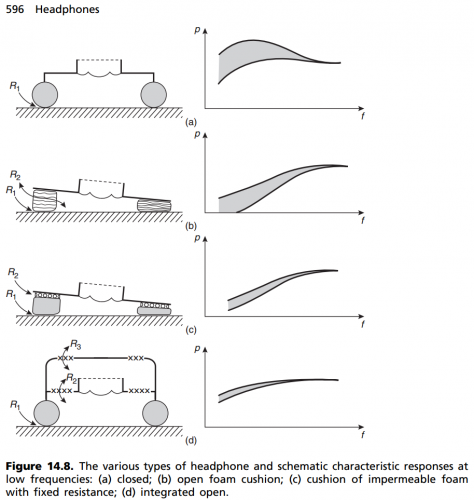gregorio
Headphoneus Supremus
- Joined
- Feb 14, 2008
- Posts
- 6,964
- Likes
- 4,174
would you kindly point out the objective criteria that make your "close to an ideal perception of a performance" more lifelike and spatially accurate than the "sound waves from the best seat in the house"?
I'm not sure what you mean by "objective criteria", at least as it would apply to creating a better subjective recording? When we're at a live performance of say an orchestra, what we perceive is based on a whole bunch of biases. Even if we're sitting in the best seat in the house we do not accurately perceive the "sound waves from the best seat in the house". Using your example of spacial accuracy for example, the brain will tend to reduce the perceived amount of reverb and concentrate more on the direct sound of what you're looking at (the orchestra). Likewise, if we look at a particular musician in the orchestra, our brain will tend to focus more on the sound of that musician and in effect raise the perceived level of that musician relative to the other musicians. The brain will also tend to significantly reduce the volume of background noise (inc. audience noise), unless there's a noise which is not part of the brain's already accepted/masked pattern of background noise, a fact which is also of particular significance in film sound.
When listening to an audio recording we obviously don't have those visual cues of the live performance and therefore our perception is always going to be different, even if the recording were a perfectly accurate capture of the sound waves at that seating position. There are additional biases at a live performance which affect our perception, biases which have nothing to do with audio and can therefore never be captured by an audio recording, the excitement and expectation bias of a live performance should be obvious examples. It should be obvious to anyone that audio formats beyond human hearing are not the answer, nor is an old, fringe stereo mic technique.
Well, that tack of creating as close to an ideal perception of a performance than just capturing the actual sound waves from the best seat in the house involves compromise(s) - more ( usually much more ) than 2 mikes, mixing desk, processing, plugins, etc, etc - which is as perfect recipe for the disaster as one might possibly think of. It will invariably impair the personal decisions how it should sound - by whoever is doing it; at best, it would be a "fake according to ...." and not the reproduction of the real thing.
Yes, it does involve compromises, it virtually always does, the question is; which provides the least compromises? Virtually no commercial recordings of large acoustic ensembles use just a stereo pair any more, because the compromises are too great! I understand that complex multi-mic'ing arrays, mixing desks and processing is apparently beyond your knowledge/ability and would therefore be "as perfect a recipe for disaster" as you personally can think of. However, there's quite a few educated, skilled and experienced pro recording engineers out there who aren't so scared/ignorant of the standard tools of the trade.
Yes, I'm aware of the "fake according to ..." crowd. Fortunately they are a fringe minority with no influence and pretty much everyone in the industry just ignores them as a bunch of nutters, the only exceptions being those few in the industry specifically trying to exploit those nutters. What's more fake than using imperfect headphones/speakers in a completely different environment to reproduce sound waves which no one at the performance perceived anyway?
It takes a fair use of one*s "processor" between the ears - provided the said processor is not brainwashed/brain dead from the results of the modern mainstream education - even after rebooting it several times.
Agreed. Although there is something even worse than a brainwashed victim of mainstream audio education, a brainwashed audiophile! At least the victim of education should have a basic understanding of the science, even though they often can't apply it creatively. The audiophile on the other hand doesn't even have that, as demonstrated by statements which apparently seem perfectly logical to them but completely insane to anyone with even a high school education!
G















![20170926_002750[1].jpg](https://cdn.head-fi.org/a/10005832_thumb.jpg)






